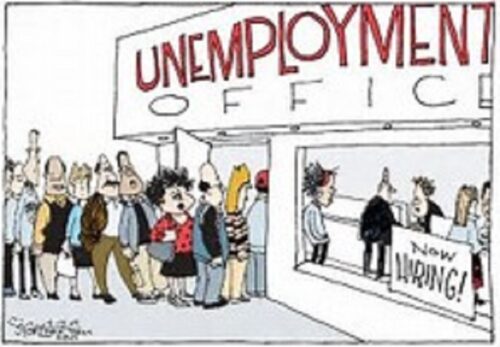9.6.23 – Talk Business & Politics

Several months ago, the U.S. was in a staring contest with an impending recession, and we all waited to see who would blink first. Fortunately, recent economic forecasts predict that the U.S. might narrowly manage to avoid a recession. But if the economy takes a turn for the worse, Arkansas is prepared.
Our state is much better equipped to handle an economic downturn than it was 15 years ago, thanks to an array of well-stewarded state reserve funds and trust funds, not the least of which is the Unemployment Insurance Trust Fund.
I serve as the president and CEO of the Arkansas State Chamber of Commerce/Associated Industries of Arkansas (State Chamber/AIA). Approximately 90% of our members have been operating in Arkansas for at least 15 years. They remember what it was like doing business in the late aughts, when they had no choice but to eliminate as many expenses as possible, lay off employees, and suffer reduced demand for their products. And because there was such a large portion of the population that was unemployed during those years, business owners were hit with yet another demand — the task of replenishing the Unemployment Insurance Trust Fund immediately after the Great Recession.
People sometimes have misconceptions about unemployment insurance, equating it to other programs that they pay into, like Social Security. But business owners will be the first to tell you — employees don’t pay into the Unemployment Insurance Trust Fund. Employers do.

Per federal law, employers are required to pay an unemployment insurance tax on taxable wages per employee. This money goes into the Unemployment Insurance Trust Fund. The state draws from this pool and distributes the funds to people who qualify for unemployment insurance.
Today, the amount that employers pay into Arkansas’ Unemployment Insurance Trust Fund is pennies on the dollar per employee. But it used to cost an arm and a leg. Employers were forced to pay a high tax rate in order to stabilize the Unemployment Insurance Trust Fund, which bottomed out in 2009 and reached $365 million in debt. At its peak price in 2012, the unemployment insurance tax cost Arkansas employers an average of $418 per employee.
It was a bleak time for employers and employees alike, and one that no one is eager to repeat. Since then, the State Chamber/AIA has beaten the bushes alongside state government officials, businesses, and nonprofits to advocate for unemployment insurance reforms. Because of the efforts of all these stakeholders, the state has made huge strides in this area.
Employers’ average unemployment insurance cost per employee has decreased by 78% since 2012. Employers are now paying an average of just $96 per employee in unemployment insurance costs. Meanwhile, the unemployment insurance trust fund has reached an all-time high of $899.9 million — more than enough to protect Arkansans in the event of another recession.
This news is a tour de force for employers who don’t have to worry about exorbitant unemployment insurance costs on top of the countless other pressures their businesses face. And here’s another great piece of news for employers: the Arkansas Division of Workforce Services (ADWS) has announced plans to modernize and streamline its unemployment insurance information systems, an initiative the State Chamber/AIA strongly supported during the 2021 legislative session.
For years, employers have been relying on an unemployment insurance database with about as much efficiency as the Yellow Pages. But thanks to Act 667 of 2021, ADWS now has the funding necessary to begin modernizing the system. The new system, once complete, will help employers, tax agents, and vendors with unemployment insurance reports and claims; provide users with a more navigable database to track and manage their files; provide more timely fraud protection; and allow users to easily spot new claims and file protests. ADWS will upgrade the system in phases and plans to have two more pieces complete by December 2024.
The unemployment insurance program has caused issues for business owners for a long time, but it has finally turned a corner. In fact, just the other day, my staff came across a decade-old letter that the State Chamber/AIA had once circulated among businesses. The letter stated, “The unemployment insurance program is a significant problem for Arkansas… so we are focused on finding solutions.”
After years of advocacy to improve this program, we are pleased to see so much progress: a streamlined online system, a 78% decrease in costs for employers, and a robust nest egg saved for the future. That’s a win for employers and employees, alike.
Editor’s note: Randy Zook is the president and CEO of the Arkansas State Chamber of Commerce and Associated Industries of Arkansas. The opinions expressed are those of the author.
